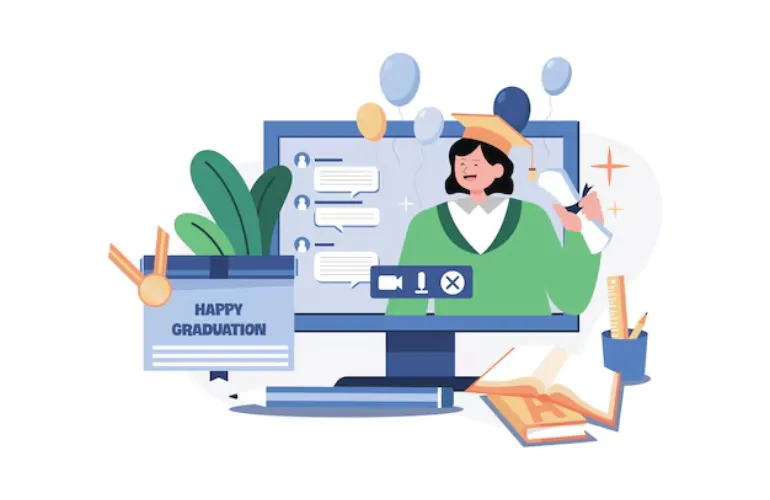We don’t need no education-the birthplace of this statement in the song of Pink Floyd has generated a lot of discussion and controversy regarding the role of education in our lives. These lyrics of the song show a kind of rebellion against the traditional conceptual educational system, which brings into question both its purpose and efficiency. The following article is dedicated to the broader context of educational philosophy and discusses arguments for and against conventional education.
The Lyrics and Understanding: A Cultural and Educational Approach
We don’t need no education became an anthem of those against the rigidity of formal education. On one hand, the phrase suggests that kids might be rejecting the conventional systems of education as stifling creativity and independent thought. This is not a slight against schools; rather, it illustrates a general concern of society about how traditional methodologies have been serving the purpose for educational needs.
Historical Background of Education on Rebellion
This is the kind of phrase that one has to understand, first having come to its historic background. The song came at a time when massive social shake-ups and cultural turns were in full swing. The 1970s were filled with movements against everything that was normal, and youths who questioned even the most recognized among institutions, including education itself. Parents Are Turning to the Utah Educational Savings Plan to Secure Their Children’s Education Its message resonated with those feeling that the educational system was too outdated and didn’t cover modern needs of students.
The Philosophy of Education Behind the Critique
The critique, as encapsulated in “We don’t need no education,” forms part of a greater educational philosophy that challenges the purpose and method of formal education. There are those people who believe that the traditional system of education nurtures conformity rather than creativity; instead of teaching students to be independent thinkers, it teaches them to tow the line. Based on this perspective, there are cries for other educational approaches that give more emphasis on critical thinking, problem-solving, and unique experiences of learning.

The Case for Traditional Education
Not everyone is critical of traditional education. Proponents say that traditional education gives the student basic knowledge and the acquisition of certain skills that lay a foundation for success in later life and the formal system of education prepares one for a chosen career path while teaching students discipline, how to manage their time, and to socially interact with people. This mode of education also ensures that students acquire general knowledge of core subjects helpful for students in general development so Read More.
Advantages of Structured Learning
A structured learning environment possesses quite a few advantages. Two of its major advantages include uniformity and reachability. Traditional systems ensure that the opportunities for learning are made available uniformly to everybody, regardless of their background. Fundamental knowledge, though at a uniform level, is thus imparted to all, bringing one closer to another.
The Role of the Educator at the Shaping of Minds
Educators mold the insight and disposition of the students. Great teachers inspire a love of learning in students, develop critical thinking, and encourage learning processes to fit individual students’ needs. Yes, the conventional system can be flawed, but committed educators can indeed bring a change in students’ lives that helps guide them through education.
Alternative Approaches to Education
As a response to these critiques, multiple alternative approaches to education have developed as various ways to supplement the shortcomings of traditional schooling. This counts the ones initiated in terms of providing the student with more control over their learning experiences. Montessori, Waldorf, and project-based learning take an upward direction toward creativity, developing students who are independent in solving problems.
Montessori Approach to Education
One of these is the alternative method devised by Maria Montessori, where the inclination of the students towards any activity is left to their decision and at their own pace, hence giving the students the option to work on topics that intrigue them and foster a love for learning in that way. Contrasting with traditional education, where it is quite rigidly structured, this is a personalized approach to learning.
Project-Based Learning and Its Impact
Other substitutes for this would be project-based learning where students are given opportunities and encouraged to work around real-life problems/projects. The PBL encourages collaboration, critical thinking, and the actual use of knowledge. Students working on meaningful projects will develop deeper understanding and retain information better, rather than just plain rote memorization.

What is the inspiration behind “We don’t need no education”?
The song by Pink Floyd was one of rebukes against the typical education system and social order in the 1970s.
Any merit to critique traditional education?
Well, critique underlines some good reasons that can be drawn about increasing creativity and personalization. It has contested educators and policymakers in the course of time to rethink the way education is delivered.
What are the advantages of alternative ways of education?
The alternative modes of education, like the Montessori and project-based learning approaches, allow for individualized learning that develops creativity, critical thinking, and independence.
How does project-based learning compare to traditional education?
Project-based learning focuses on real-world applications and student-led projects, whereas traditional education is often standardized testing and rote memorization.
Does this allow any scope for improvement to traditional education from the above criticisms?
Indeed, the integration of some aspects of alternative methods into traditional education can make learning more exciting and relevant to pupils’ lives.

Conclusion
We don’t need no education; that’s a strong criticism toward traditional education. It surely opens our minds to how we currently perceive teaching and learning. Although the conventional system is good, there is always room for improving it with some innovative ways of education which may better equip students for their future. In that way, we will be able to balance both the traditional and alternative educations together for a far more functional and nondiscriminatory educational environment.





